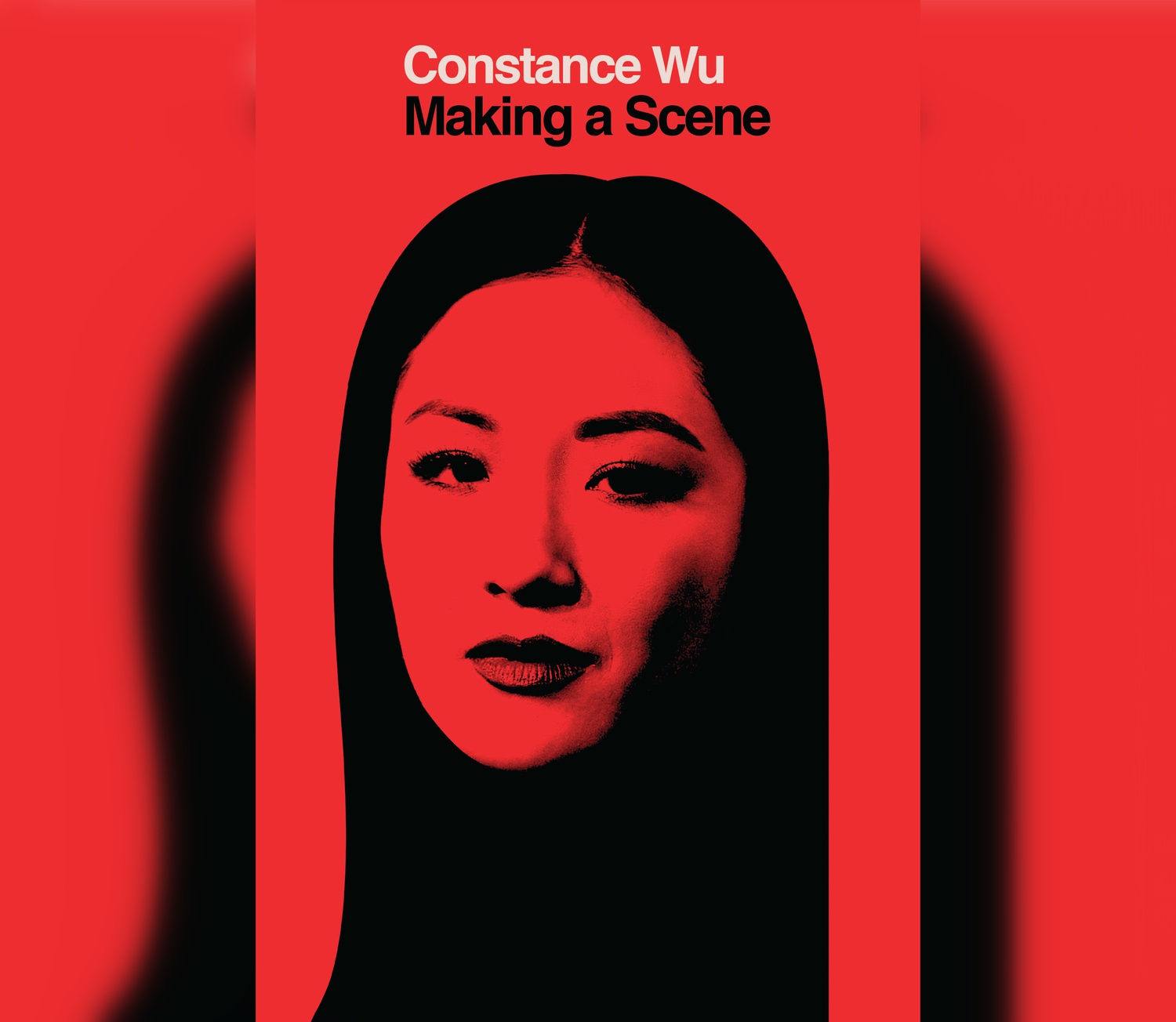
News
Summers Will Not Finish Semester of Teaching as Harvard Investigates Epstein Ties

News
Harvard College Students Report Favoring Divestment from Israel in HUA Survey

News
‘He Should Resign’: Harvard Undergrads Take Hard Line Against Summers Over Epstein Scandal

News
Harvard To Launch New Investigation Into Epstein’s Ties to Summers, Other University Affiliates

News
Harvard Students To Vote on Divestment From Israel in Inaugural HUA Election Survey
‘Making a Scene' Review: Constance Wu is Unapologetically Herself
3.5 Stars

Constance Wu is not afraid of embarrassment, and that is the greatest strength of her debut essay collection “Making a Scene.” The “Crazy Rich Asians” and “Fresh Off the Boat” actress does not hold back as she shares stories set from her small-town childhood in Virginia to the bright lights of New York and Los Angeles. In doing so, she invites the reader backstage to learn about her life beyond the screen.
Wu’s strongest essays delve into the ambiguity of issues and share both flattering and unflattering parts of her honest self. In “Welcome to Jurassic Park,” she proposes reclaiming Asian stereotypes in media by reframing stereotypical traits as worthy of celebration rather than suppression: “When our reactivity to old wounds renders us ashamed to the point of objection or repudiation, it reinforces the mainstream’s ignorant theory that the people who embody those stereotypes are inherently shameful,” she writes. Likewise, in “Unfinished Mansions,” Wu gives a tribute to her parents that doesn’t hide the fraught and messy relationships that make up her family; it instead chronicles her parents’ story — one that certainly is a far cry from Rachel and Nick’s cookie-cutter fairytale in “Crazy Rich Asians”— and acknowledges the complexity of real life compared with life on the television screen: “Everybody wants it in a sound bite. But the story of my mom doesn’t fit in a sound bite.”
Wu writes in simple, clear prose, which is both her greatest strength and weakness. At times, Wu’s writing feels a bit immature: In “Impeach the President,” she says of her friend, “She knows about all of my boyfriends. All their dick sizes too (sorry, guyyyys).” Perhaps the charm of the book is that these embarrassing anecdotes and occasionally juvenile writing style are an integral part of expressing the “big feelings” that Wu strives to embrace, but at times it feels overdone.
Beneath it all, we get to see the value that performance holds in Wu’s life. It serves as a way for her to stand out; a particularly hilarious anecdote comes when she recounts her audition as Sara Crewe in a community theater production of “A Little Princess.” (“I went full-on Sally Field crying over Julia Roberts’s death in “Steel Magnolias.” I made a goddamn scene of it.”) She briefly touches on the importance of performance in society in “Exploring an Orange,” in which she recounts how her examination of an orange during an acting class led to a reflection on the interconnectedness of life: “This orange, and the opportunity to explore it. What a privilege to be an actor, to examine life in this way.”
On the whole, though, “Making a Scene” is about acknowledging the less-than-savory parts of oneself and knowing that they’re still a part of one’s story and that it is okay to miss them. Wu addresses the cynical reality of the entertainment industry and laments the scorn that overblown emotions often elicits from others. “Outside the bubble of community theater, the world often mocks sincerity and commitment — especially in Hollywood.” Yet, Wu is not afraid to acknowledge that these big feelings, though valid and freeing, are not always good; she explores her childhood jealousy of her younger sister and how she lashes out because of these feelings.
Perhaps most damning of all, though, Wu shows how society’s pressure to suppress big feelings can lead to very real, very deadly consequences, by sharing her own account of rape and sexual harassment. She provides a sobering reality that is punctuated by the simple, frank tone of her book. Her refusal to not simply relate events, but also focus on examining various perspectives and acknowledging the thorns and ambiguities of current societal issues adds an additional layer of honesty to her account. She shares her own perspective, too, on why women are often so scared to accuse men of sexual harassment: “Her claim is filled with shame and guilt and regret over the things she didn’t say or do in the moment, for fear of making a scene.”
Ultimately, the premise of the book can be found in its very title. “Making a Scene” comes from a woman unafraid to stand up for herself and, if not necessarily embrace, acknowledge the flaws of her younger self. Wu makes the choice to own her stories, and anyone who reads “Making a Scene” will surely feel inspired to do the same.
Want to keep up with breaking news? Subscribe to our email newsletter.
